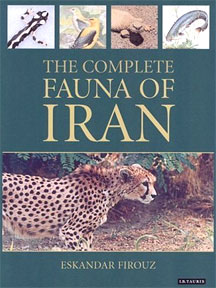 Komiteh Javaher Komiteh Javaher
Documents: How crown jewels came to be the property of the NATION trhough the efforts of Iranian modernists -- and an American
Amir Rostam Begli Beigie
January 28, 2007
iranian.com
Yet again we are observing the Greek public anger or 'gheirat' boiling over about something that is being done to their national pride. So what is it this time that has caused the Greeks to lose their marbles again?
Geece's King Comstantine is accused of selling Greek national treasures when the royal antiques and jewels were put up for auction in London. From Faberge eggs and clocks to English silver sous plats, from paintings to incence burners, the chattels of the formere royals skyrocketed as Greek shipowners and others eager to acquire a bit of royal history bid up the prices to ten times the estimates in many instances.
Constantine swore on a stack of bibles that he was not the seller though few believe him as in the 1990s the Mitsotakis government allowed the former royals to export some 9 containers of property from the Tatoi palace, if the ex-king spoke the truth he must have sold the family jewels earlier.
It is laughable to read of present government's insistance that Chrisitie's should stop the sale as the Greek government has a 'legitimate interest in protecting its history'. Their hypocrisy is not dissimilar to our own IRI leaders who cannot choose between their greed, or their subservience to the Arab Nationalist cause, namely Islam, or the Iranian national cause, invoking the latter whenever their stinking necks are on the line in order to buy popular support.
But that is not the point. The question of the crown jewels is reminder of a little known yet very significant episode in Iranian history. It is gratifying to know that despite western propaganda about how we owe everything to the Greeks we 'barbarians' (as Greek tourist guides describe Persians) protected our crown jewels in law long before (just under a 100 years) thanks only to a bunch of young Iranian modernists. Yet their memory and devotion to duty has been villified by recent generations because of envy, lack of understanding of history and perhaps blind ambition.
 Just under a 100 years ago, when Mohammad Ali Shah Qajar failed in his attempt to roll back Constitutional Monarchy taking refuge in the Russian Embassy and had to negotiate his exit from Iran, one of the main conditions of the modernists running the revolutionary committees in defence of parliamentary democracy and the constitution movement was that he did not take any of the crown jewels with him into exile. After his departure a number of reforms such as ridding of the Qajar court of corruption and government finances were made. Just under a 100 years ago, when Mohammad Ali Shah Qajar failed in his attempt to roll back Constitutional Monarchy taking refuge in the Russian Embassy and had to negotiate his exit from Iran, one of the main conditions of the modernists running the revolutionary committees in defence of parliamentary democracy and the constitution movement was that he did not take any of the crown jewels with him into exile. After his departure a number of reforms such as ridding of the Qajar court of corruption and government finances were made.
The latter became a famous episode of Iranian history as the modernists were made to fail in their attempt to gain control of the government finances by the two colonial powers. The story of how their efforts were sabotaged was made famous by a young American financier Morgan Shuster, in his famous book, Strangling of Persia. Shuster had been hired by the Iranian government in 1911 to head the Treasury to bring financial stability to the country. But one of the measures which did succeed was the work by a committee set up by the revolutionary modernists called the "Komiteh Javaher" or "Jewel Committee".
The committee -- organised by selected members of the constitutional movement who were holding ministerial posts and Morgan Shuster -- set about making an inventory of the crown property and ennshrining in law its ownership by the NATION. It is through the foresight of this comittee's members that the Iranian crown jewels have remained so. Refer to letters (Persian -- French) written by Shuster to Ebrahim Hakimi minister of finance (which by the way mention Ahmad Shah and Qajar objections) in national archives >>> See documents
We see similar acts by this amazing generation, yet none has really tried to make a big deal of what they tried to achieve in very difficult times and yes they were not in the end allowed to achieve all they wanted. But that does not lessen the debt we owe to them. Yet we have never really recognised their achievements but foreigners like Amin Maalouf -- in his award winning book Samarkand -- have!
We Iranians neither appreciate what we have nor the sacrifices made. Similar to Greeks we oftem act on emotion instead of logic. Believing whatever political prejudice, foreign propaganda or libelous innuendo against our own and villifying the memory of those who truly served the nation. Commen
>>> Pages
(1-Persian) (1-French) (2) (3) (4) (5) (6) (7)
|